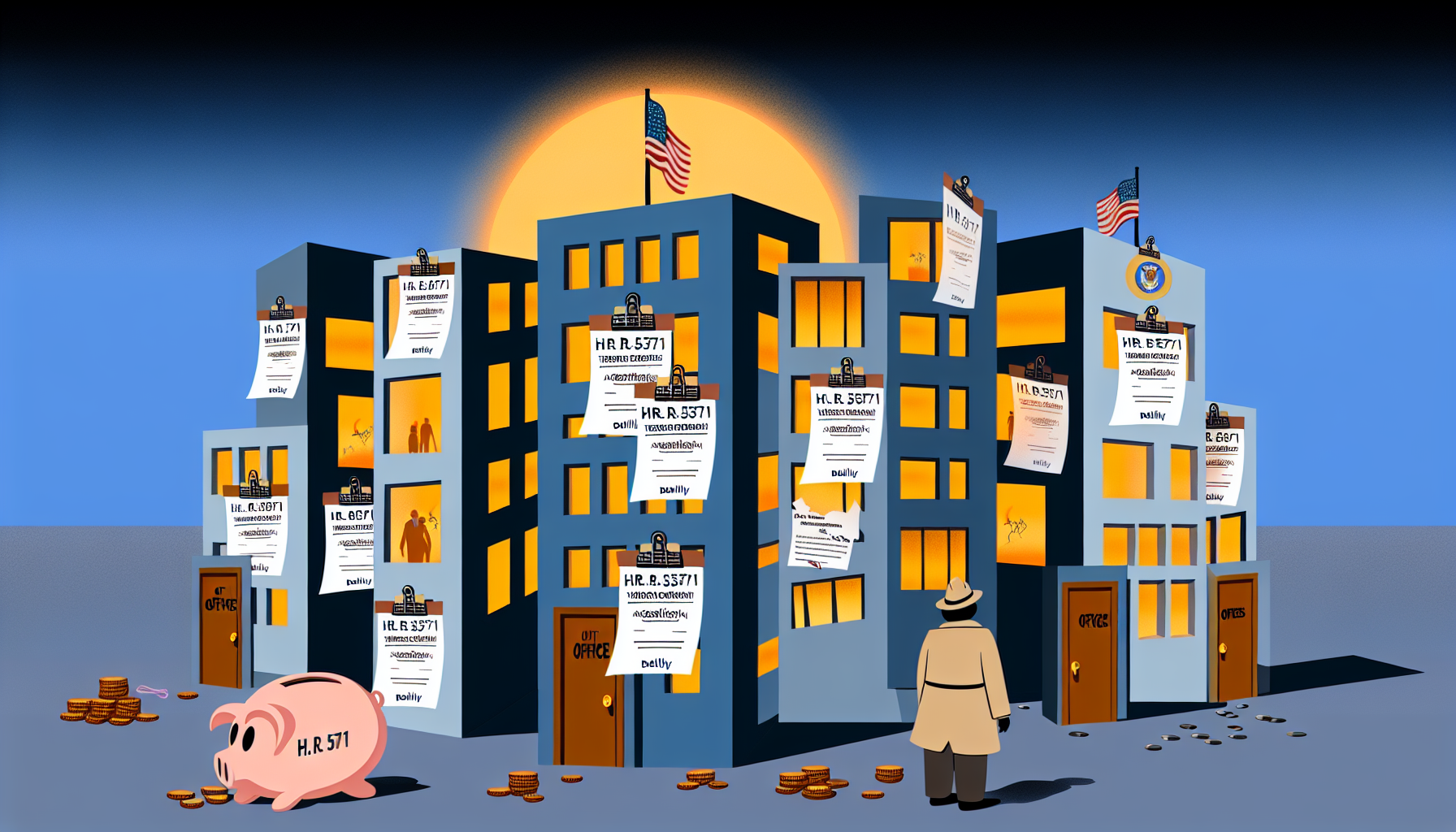A fresh political flashpoint has erupted over IT outsourcing after activist Laura Loomer claimed on September 5 that President Donald Trump is considering blocking U.S. IT companies from outsourcing work to Indian firms, echoing calls to “Make Call Centers American Again.” The rhetoric quickly drew amplification from conservative influencers promoting tariffs, including “It’s tariff time,” and speculation of duties as high as 50%. Fact-checkers, however, report no official policy or executive action banning IT outsourcing as of September 6, 2025, underscoring a widening gap between activist statements and formal U.S. measures. [1][3][5]
Key Takeaways
– Shows Loomer’s September 5 X post alleging Trump considers blocking US IT outsourcing to India, urging to “Make Call Centers American Again.” [1][2] – Reveals allies Peter Navarro and Jack Posobiec amplified calls, with Navarro’s “It’s tariff time” push and proposals reaching tariffs up to 50%. [1][3] – Demonstrates no official ban exists as of September 6, 2025; outsourcing to India remains legally permitted, according to an independent fact-check. [5] – Indicates potential disruption to contracts supporting millions of Indian tech workers and critical backend, support roles if a block or tariffs proceed. [2][1] – Suggests rising US–India tensions after September 4–7 coverage, as activist rhetoric broadens from call centers to visas and immigration restrictions. [2][4]
What was actually said, and when
Financial Express reported on September 6 that Loomer posted on X a day earlier, asserting Trump is considering blocking U.S. IT companies from outsourcing to Indian firms, warning of major job losses in backend and support roles. Her message packaged the demand under “Make Call Centers American Again,” mirroring protectionist themes that have periodically emerged in U.S. politics. [1]
Times of India coverage on September 6–7 echoed the claim and captured mounting anxiety in India’s tech sector, where outsourcing contracts underpin service delivery for U.S. enterprises across customer support, help desks, and managed services. The report noted the possibility of disruptions and rising trade tensions if restrictions are enacted. [2]
Business Standard framed the Loomer claim alongside tariff-heavy rhetoric by allies such as Jack Posobiec and former Trump adviser Peter Navarro, highlighting chatter about levies “up to 50%.” Navarro’s “It’s tariff time” refrain, resurfacing amid renewed protectionism, punctuated the escalating debate. [3][1]
NDTV placed the moment within a broader campaign by conservative influencers targeting India on visas and immigration and even calling to “tariff call centres.” The outlet also cited critical voices who say such language is xenophobic and warn that protectionism could damage innovation and bilateral ties. [4]
No official ban: separating claims from policy reality
A DFRAC fact-check on September 6 concluded there is no official U.S. policy banning IT outsourcing to India. The outlet traced the flare-up to Loomer’s September 5 post and emphasized the distinction between activist speculation and actual executive action. It also noted that Trump’s anti-outsourcing rhetoric in July 2025 resurfaced, but absent any formal rulemaking. [5]
That means, as of September 6, companies can continue existing outsourcing arrangements, and Indian providers remain legally able to service U.S. clients. For now, the story is largely about political signaling and pressure tactics rather than concrete regulation with immediate legal force. [5]
What a US IT outsourcing block could mean
If a U.S. administration were to pursue a block on IT outsourcing to India, companies would likely face sudden reconfiguration of support operations, including call centers, help desks, and back-office functions. Loomer’s warning specifically mentioned potential losses in backend and support roles—precisely the categories most commonly externalized to Indian providers. [1]
Times of India underscored that millions of Indian tech workers depend on these cross-border service contracts. Even a partial restriction could trigger ripple effects across service-level agreements, vendor staffing, and delivery timelines, and may force firms to re-shore or re-nearshore sensitive workloads. [2]
Tariff threats and a 50% number: cost shock scenarios
Allies promoting tariffs argue that punitive duties would reset incentives, but a 50% rate—cited by Business Standard as an example of the escalation in rhetoric—would represent a dramatic cost shock if applied to services or related inputs. While operational details are unclear, the headline figure signals the scope of adversarial policy under discussion. [3]
Navarro’s “It’s tariff time” post captured that tone, suggesting blunt instruments rather than targeted adjustments. Even the threat of high tariffs can drive contingency planning, accelerate contract renegotiations, or prompt companies to diversify delivery footprints to hedge policy risk. [1][3]
Implementation hurdles for an IT outsourcing ban
DFRAC’s analysis emphasizes a crucial point: no executive orders, agency rules, or legislative measures have been announced. Moving from rhetoric to regulation would require clear legal authorities, detailed scoping, interagency coordination, and likely involve the U.S. Trade Representative and multiple regulators. That process takes time and would face intense industry and diplomatic pushback. [5]
Moreover, structuring tariffs or bans around intangible, cross-border services presents unique definitional and enforcement challenges compared with goods trade. Without formal text or rulemaking, affected companies can only model scenarios loosely, anchored to the 50% tariff talk and “call center” focus that dominate the current discourse. [3][1]
Potential impact on IT outsourcing costs, contracts, and jobs
In the near term, enterprises could revisit master service agreements to add force majeure-like clauses for trade restrictions, diversify vendor portfolios regionally, and map critical functions that can be relocated on short notice. Indian providers may prioritize client sectors most exposed to U.S. politics, such as customer support and consumer-facing tech. [2]
If tariffs approached the floated 50% mark, effective cost differentials that make India attractive could compress rapidly, even before accounting for relocation and compliance costs. Vendors might respond by shifting some delivery to third countries, distributing workloads to mitigate direct exposure, or offering price concessions to retain U.S. clients. [3]
On the labor side, Loomer’s claim focused on backend and support roles, which typically anchor call center and help desk lines of business. Those would be first in the policy crosshairs, given the conspicuous symbolism of “bringing back” call centers. The broader Indian IT services stack—R&D centers, application development, cloud ops—would evaluate risk spillovers. [1][2]
Signals versus policy: reading the political market
News cycles like this one can shape corporate behavior even absent binding rules. The September 4–7 coverage arc across multiple outlets amplified a narrative about curbing IT outsourcing to India, marked by a viral post, a tariff catchphrase, and downstream press reactions. Yet the fact-check baseline remains: no ban exists as of September 6. [2][1][5]
Investors and procurement teams often treat such signals as early indicators to de-risk exposure. That includes staging alternate vendors, pre-agreeing transition plans, and scanning for language in U.S. agency dockets that could foreshadow policy movement from rhetoric to rulemaking. [5]
The broader US–India tech and immigration narrative
NDTV’s reporting positioned the outsourcing rhetoric alongside calls that target visas and immigration, including the phrase “tariff call centres.” That bundling matters: if the political aim expands beyond call centers to the broader tech labor mobility regime, the policy menu grows wider and potentially more disruptive. Experts quoted by NDTV warn of innovation slowdowns and strained bilateral ties under heavy-handed protectionism. [4]
Times of India likewise highlighted concerns within India’s tech industry about contract stability and the possibility of a chill on new agreements as clients weigh political risk premiums. Those concerns are acute where service breadth spans both customer-facing operations and higher-value engineering services. [2]
What to watch next for IT outsourcing stakeholders
– Formal executive actions: Any executive orders, agency rulemakings, or USTR notices would mark a shift from rhetoric to enforceable policy. [5] – Tariff pathways: Concrete tariff schedules or public consultation on service tariffs would validate the “It’s tariff time” push beyond slogans. [1][3] – Contract language: Large U.S. buyers may introduce trade-restriction triggers in new statements of work as a precautionary step. [2] – Diplomatic signaling: US–India consultations or statements that address outsourcing directly would indicate rising bilateral stakes. [4] – Activist cadence: Additional posts or media appearances by the same influencers can signal sustained advocacy versus a single-cycle flare-up. [1][3][4]
Bottom line
For now, IT outsourcing continues uninterrupted by U.S. decree, despite high-profile calls to “Make Call Centers American Again” and tariff rhetoric reaching a stark 50% number. The delta between activist speech and administrative action, documented by fact-checkers, is the critical variable for risk planning. Stakeholders should monitor policy channels while conducting low-regret hedges to ensure continuity if politics turns into policy. [1][3][5]
Sources:
[1] Financial Express – Trump mulling blocking IT outsourcing, says Laura Loomer, pushes to ‘make call centres American again’: www.financialexpress.com/world-news/us-news/trump-mulling-blocking-it-outsourcing-says-laura-loomer-pushes-to-make-call-centres-american-again/3968637/” target=”_blank” rel=”nofollow noopener noreferrer”>https://www.financialexpress.com/world-news/us-news/trump-mulling-blocking-it-outsourcing-says-laura-loomer-pushes-to-make-call-centres-american-again/3968637/
[2] Times of India – Is Trump considering blocking IT outsourcing to India? Aide says, ‘Make call centers American again!’: https://timesofindia.indiatimes.com/world/us/is-trump-considering-blocking-it-outsourcing-india-aide-says-make-call-centers-american-again/articleshow/123733173.cms [3] Business Standard – Trump may block US IT outsourcing to India, warns Laura Loomer on jobs: www.business-standard.com/industry/news/trump-us-it-outsourcing-laura-loomer-call-centres-india-jobs-125090600297_1.html” target=”_blank” rel=”nofollow noopener noreferrer”>https://www.business-standard.com/industry/news/trump-us-it-outsourcing-laura-loomer-call-centres-india-jobs-125090600297_1.html
[4] NDTV – “Tariff Call Centres”: US Influencers Target India Over Visas, Immigration: https://www.ndtv.com/world-news/donald-trump-india-us-tariff-call-centres-us-influencers-target-india-over-visas-immigration-9216712 [5] DFRAC (fact-check) – No official ban, Outsourcing to India still allowed despite US rhetoric: https://dfrac.org/en/2025/09/06/fact-check-no-official-ban-outsourcing-to-india-still-allowed-despite-us-rhetoric/
Image generated by DALL-E 3









Leave a Reply